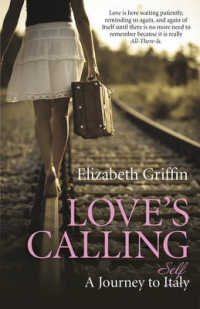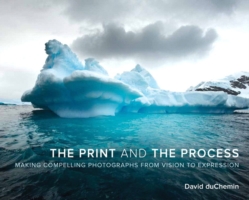- ホーム
- > 洋書
- > 英文書
- > Religion / Ethics
Full Description
In The Church of England and the Second World War, John D. Alexander analyses how historic Christian ethical traditions influenced the Church of England's contributions to British pre-war and wartime public policy debates. These traditions include just war, holy war, pacifism, and Christian realism as deployed by such diverse Anglican figures as Cosmo Gordon Lang, William Temple, Herbert Hensley Henson, George Bell, Cyril Forster Garbett, Charles Raven, Percy Hartill, Evelyn Underhill, Vera Brittain, and James Parkes. Additional themes include war as divine judgement, humanitarian intervention, and Church of England responses to the Holocaust. As a case study in the application of Christian ethical traditions, this book makes vital connections between Anglican studies, international relations theory, and the diplomatic, military, and humanitarian challenges of the mid-twentieth century.
Contents
Contents
Preface
Acknowledgements
Abbreviations
1 War and Peace: Christian Ethical Traditions
1 Christian Pacifism
2 The Just War Tradition
3 War's Justification—Jus ad Bellum
4 War's Conduct—Jus in Bello
5 War's Ending—Jus Post Bellum
6 Humanitarian Intervention
7 Holy War and Crusade
8 Holy War and Chivalry
9 Classical Realism
10 Christian Realism
11 A Traditions-Based Approach
2 The Church of England and the British Constitution
1 Establishment
2 The First World War
3 The Church Assembly
4 Christian Socialism and COPEC
5 The 1926 Strikes
6 The 1928 Prayer Book
7 The Rediscovery of Christian Civilisation
8 The Abdication Crisis
9 Foundations of the Welfare State
10 The 1944 Education Act
11 A Dynamically Evolving Relationship
3 The Pre-war Church of England and Nazi Germany: Uses and Limits of Soft Power
1 The Anglican Legacy of Protesting Persecution
2 Responses to Persecution of the Jews
3 The German Church Struggle
4 Anglican Responses to the German Church Struggle
5 The Autumn 1934 Crisis
6 Temple and the Concentration Camps
7 Bell and the Refugees
8 Repression Intensifies in 1935
9 Ribbentrop in London
10 Escalating Conflicts, 1936-1937
11 Niemöller's Trial and Imprisonment
12 Bell's Refugee Advocacy
13 After Kristallnacht
14 Bell's Lucien Wolf Lecture
15 The End of the Church Struggle
16 The Uses and Limits of Soft Power
4 The Church's Function in Wartime: 'To Be Still the Church'
1 Wartime Days of Prayer
2 Military Chaplaincies in Wartime
3 The Clergy Exemption
4 The Wartime Use of Church Buildings
5 The Wartime Church and the British Constitution
5 Justifying War: Jus ad Bellum and Christian Realism
1 The Just War in Anglican Context
2 The Just War in 1914-1918
3 An Incipient Christian Realism
4 The Treaty and the Covenant
5 The Failure of Collective Security
6 A Righteously Regulated Coercion
7 The 1937 Oxford Conference
8 Appeasement and Its Discontents
9 The Munich Agreement
10 From Kristallnacht to Prague
11 A Just War Debate on the Eve of War
12 The Just War in the Theological Colleges
13 Eve of War Sermons
14 Thoughts in War Time
15 A Plain Duty
16 Waging Just War Justly
17 Relevance of the Jus ad Bellum and Christian Realist Traditions
6 War as Divine Judgement: the Call to Repentance and Prayer
1 War in the Anglican Liturgical Tradition
2 Challenges to a Providential Universe
3 Divine Judgement in World War I
4 The Theology of Crisis
5 Divine Judgement in 1939-1940
6 Critiques of Divine Judgement
7 Prayers for Victory
8 A Vanishing Discourse
7 The Struggle for Christian Civilisation: Holy War, Crusade, and Chivalry
1 Crusade and Chivalry in the Great War
2 The Struggle for Civilisation in 1939
3 Five Books of 1939
4 Henson: the Good Fight
5 The Persistence of Chivalry
6 Henson: Last Words in Westminster Abbey
7 Was the Second World War a Crusade?
8 Justice in Warfare I: the City-Bombing Debate
1 Reprisals in World War I
2 Protesting Inter-war Atrocities
3 The First Year of War
4 A New Method of Warfare
5 The Committee to Abolish Night Bombing
6 The May 1941 Convocation
7 Churchill and Retribution
8 The Switch to Area Bombing
9 Temple's First Year at Lambeth
10 The Air War Escalates
11 Seeking Clarifications
12 The Bishop's Speech
13 Temple's Christian Realism
14 Seed of Chaos
15 Sentimental Nonsense and Sheer Humbug
16 The Bombing of Ethics
17 Dresden and Churchill
18 Competing Ethical Perspectives
9 Justice in Warfare II: Internment, Prisoners of War, Blockade
1 Internment of Enemy Aliens
2 Shackling Prisoners of War
3 Blockade and Famine Relief
4 Relevance of the Jus in Bello Tradition
10 Peace Aims and Jus Post Bellum
1 Seeking an Early Settlement
2 The Berggrav Initiative
3 New Year's Resolutions
4 Christianity and World Order
5 The Hope of a New World
6 Sword of the Spirit
7 The December 1940 Joint Letter
8 The Stoll Theatre Meetings
9 The Canterbury Convocation and Churchill
10 The Elusive Quest for Christian Cooperation
11 Vansittartism
12 Bell's Visit to Sweden
13 Bell's Return to England
14 Campaigning for the Resistance
15 Germany and the Hitlerite State
16 News from America and Russia
17 Temple on the Balance of Power
18 The Momentous Summer of 1944
19 Debating the Occupation
20 Envisioning Europe's Future
21 Peace Aims and Jus Post Bellum
11 The Church of England and the Pacifist Conscience
1 Conscience and Objection
2 Conscientious Objection in British Law
3 Conscientious Objection in World War I
4 Anglican Pacifism between the Wars
5 Dick Sheppard
6 The Peace Army
7 The Peace Pledge Union
8 Saying No to War
9 Heresy versus Apostasy
10 The Church Assembly Debates Pacifism
11 Over the Bridge to Lambeth
12 Pacifism as a Personal Vocation
13 A Pacifist Interpretation of Article 37
14 The Archbishops Meet the APF
15 Pacifist Episcopacy
16 An Anglican Compromise
12 The Pacifist Witness in the Church of England
1 A Pacifist Academic: Charles Raven
2 A Pacifist Parson: Percy Hartill
3 A Pacifist Mystic: Evelyn Underhill
4 A Pacifist Activist: Vera Brittain
5 Assessing the Anglican Pacifist Witness
13 The Church of England and the Holocaust
1 Antisemitism and Ambivalence
2 Henson on Judaism
3 James Parkes on Church and Synagogue
4 The Council of Christians and Jews (CCJ)
5 Initial Responses to Genocide
6 The Allied Joint Declaration
7 The Bar of History, Humanity, and God
8 The Bermuda Conference
9 Radio Broadcasts to Hungary
10 Vagaries of Bystander Scholarship
11 Lawson's Critique
12 Assessing the Anglican Witness
Conclusion
Bibliography
Index








